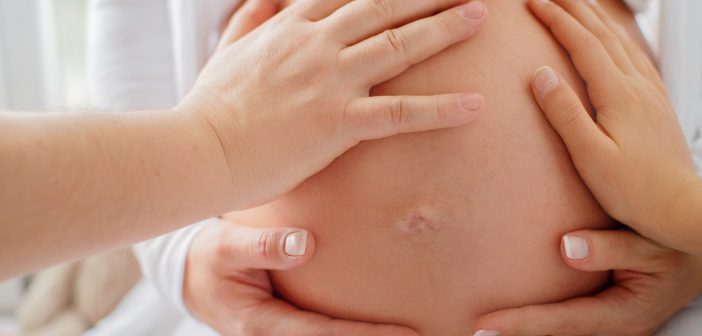Did you know that the history of assisted reproduction dates back as far 1845?
We’ve come a long way in the almost 200 years since those first attempts at artificial insemination. And among the most common technologies used today is egg donation.
Whether you’re looking for help with conception or you’re interested in donating your eggs, there’s a lengthy process involved. Knowing the egg donation process beforehand can help you decide whether it’s right for you.
Before consulting your doctor, read this to learn everything you need to know regarding the egg donation procedure.
What Is Egg Donation?
Egg donation is also known as ovum donation or third-party fertility. It’s a major part of assisted reproductive technology (ART) and is most frequently used to benefit women who are unable to produce or use their own eggs when conceiving a child.
Egg donation involves a fertile woman donating her egg or oocyte. The egg is removed from the donor during a procedure and fertilized in a laboratory. Typically, the embryos are then placed into the intended parents’ uterus, through a surrogate is another option.
The Egg Donation Process: The Donor
If you’re thinking about egg donation, you should prepare for a lengthy process. Below, we’ve outlined the egg donation process is greater detail so you know what’s involved. This will help you make a more informed decision as to whether the egg donor process is right for you.
Candidacy
Becoming an egg donor requires an intense selection process. Before going through the intense screening process, it’s helpful to know who makes a good candidate.
The factors affecting candidacy involve two main criteria. The first is the likelihood that a woman’s eggs will produce a successful pregnancy and the second is the likelihood that a woman’s eggs risk congenital anomalies. This is why many fertility facilities favor women who have already given birth or donated eggs.
But, typically speaking, a good candidate is a woman between the ages of 21 and 35. At these ages, women have more eggs and eggs of higher quality. They also respond better to the fertility drugs required in the process.
Donating eggs also means that you’re free of any health conditions that could cause complications or could pass onto the embryo. Candidates must be free of infection like hepatitis and HIV. They should also be at a low-risk for genetic diseases like cystic fibrosis.
Screening
Beyond being a good candidate according to the terms we’ve outlined above, you’ll go through a screening process at the fertility facility. Screening guidelines are set by the U.S. Food and Drug Administration (FDA). They usually follow the following steps:
- Applying to become a donor online or in-person
- Being interviewed over the telephone or in person
- Taking a physical examination to determine your health and eligibility
- Taking blood tests and drug tests to further determine the condition of your health and eligibility
- Having an ultrasound that examines the condition of your reproductive organs
- Being screened for any infectious or inherited disease that could affect the embryo or the pregnancy
Keep in mind that you’ll have to provide a detailed family medical history as well. It’s important that there is very little risk for passing on genetic anomalies.
In addition to medical screening as outlined above, you’ll also have to go through psychological screening. Donating your eggs can be an emotional experience and reputable fertility facilities try to take emotional care of both donors and recipients.
For more information on how to become an egg donor, learn how here.
Medications
If you’re selected as a donor, the egg donation process begins with medications that will change your menstrual cycle. While not necessary for all egg donation, this medication helps to sync your cycle with the intended parent.
The side effects of this medication are minor. They include headache, fatigue, aches, and hot flashes.
Once your cycles synchronize, you’ll begin taking fertility drugs. These drugs create hyperstimulation. This means that your ovaries will produce more than one egg at a time.
This fertility medication is your responsibility to administer. It must be injected under the skin and directly into your muscle. Your doctor will explain where, how, and when to do this.
The side effects of fertility medication are also minor. They involve mild bruising as a result of the injections as well as mood swings and tenderness in the breasts.
While you’re taking the fertility medication, you’ll be asked to take blood tests and ultrasounds. This is to ensure that your body is reacting to the medication. It also protects your health throughout the process.
Extraction
Before you go into the procedure to retrieve your eggs, you’ll have to undergo one last injection. This injection prepares your body for the retrieval process.
The extraction procedure is also known as a transvaginal ovarian aspiration. Performed by your doctor, it lasts approximately 30 minutes.
An ultrasound probe will be inserted into the vagina. This probe utilizes a small needle to separate your eggs from your follicles. Your doctor may offer you sedatives, anesthetic, or pain killers, to cope with the effects of the procedure.
Aftercare
Most women are required to stay at the hospital or clinic following the procedure. The stay is typically only for 24 hours following the surgery but some women require several days to recover.
The Egg Donation Process: The Intended Parents
A woman might require another woman’s eggs for a number of reasons.
Some women choose to bear children later in life. But fertility in women decreases with age. Meaning that women over the age of 35 might have a difficult time conceiving with their own eggs.
While some women choose egg donation because they have a diminished ovarian reserve due to age, others receive a diagnosis of ovarian failure or Polycystic ovary syndrome (PCOS). Egg donation also benefits women who have undergone medical treatments that limited their fertility. Other women choose egg donation because they have genetic disorders that they wish to avoid passing onto their children.
But not all people seeking egg donation are women. Sometimes, single males or gay couples require egg donors. Those eggs are then placed into a surrogate to help them conceive a child and start a family.
Below we’ve outlined the egg donation process for in-vitro fertilization. Keep reading to learn more.
Consultation
During your initial consultation, you’ll discuss why you’re seeking egg donation and where you’re at in your fertility journey to this point. Beyond your medical records, your doctor will also discuss your emotional wellbeing.
After figuring out the treatment options available to you, your doctor will explain the process in-depth. You can then talk about what you’re looking for in an egg donor.
Examination
When you’ve decided on your facility, your doctor will tell you how to prepare for the egg donation process. You’ll be required to undergo a physical examination as well as a medical evaluation.
Choosing Your Donor
The next step in the egg donor process is probably one of the most exciting. This is where you’ll choose the person donating eggs to you. You’ll have the opportunity to view the egg donation profiles, which typically include information about the donor’s
- education
- medical history
- background
- family history
These profiles might also include photographs, so you can get to know your donor on a more intimate level.
Legal Agreements
When you choose the donor, both you and the donor will be required to sign legal agreements. These are signed before the medication cycle begins for either one of you. They ensure that you’re legally named the parent of the child.
The Medication and Extraction Process
Your menstrual cycle must be synchronized with the donor using birth control as well as injections of Lupron. This ensures that your uterine lining is ready for implantation following extraction from the donor. Typically, that means that your cycle will have to be one week ahead of your donor.
Once your cycles have been synchronized, your donor will begin the process described above. After her eggs have been extracted and placed in a petri dish, they’ll be fertilized within a few hours.
For the next five days, the embryos will be able to grow and develop. On the fifth day, the embryos will be transferred to your uterus. Usually, they are graded for quality before being transferred to ensure the best possible results.
Advice and Tips for Moms (and Moms-to-Be)
The egg donation process is lengthy and involved for donor and intended parent alike. But with the incredible technology we have today women who are unable to conceive naturally can still experience the beauty of pregnancy and giving birth. Even where that isn’t possible, other assisted reproductive technologies allow people to become parents who otherwise could not.
And when the time comes to raise your children, you’re going to need advice and tips to get you through the best of times. Check out our parenting blog for all the help you’ll ever need.




